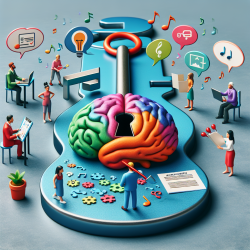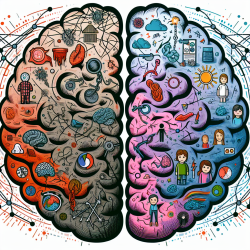The rapid advancement of digital technologies and artificial intelligence (AI) has brought about significant changes in various sectors, including education and therapy. As practitioners in the field of online therapy services, it is crucial to ensure that these technologies are used ethically and responsibly. The research article "Philosophical foundations for digital ethics and AI Ethics: a dignitarian approach" by Robert Hanna and Emre Kazim provides a comprehensive framework for understanding and applying digital ethics grounded in human dignity.
Understanding Dignitarian Ethics
Dignitarian ethics is rooted in the Kantian theory of human dignity, which posits that all human beings possess an intrinsic value as ends-in-themselves. This concept is fundamental to digital ethics and AI ethics, emphasizing the moral obligation to treat individuals with respect and not merely as means to an end. The research outlines ten steps to establish a dignitarian approach to digital ethics:
- Define "digital ethics" and "AI ethics"
- Refute the dignity-skeptic
- Explore the metaphysics of human dignity
- Discuss human happiness or flourishing
- Identify moral obligations towards all human persons
- Define natural automata or machines
- Delineate why humans are not natural automata
- Moral obligations regarding artificial automata design and use
- Understand privacy and its moral implications
- Differentiate between dignitarian morality and legality
Applying Dignitarian Ethics in Online Therapy
For practitioners providing online therapy services, integrating dignitarian ethics involves several key considerations:
- Privacy Protection: Ensure that all client data is protected against unauthorized access. Obtain explicit consent for data collection and use.
- Respect for Autonomy: Empower clients by respecting their autonomy and decision-making capabilities. Avoid using manipulative techniques that undermine their agency.
- Cultural Sensitivity: Recognize and respect the diverse backgrounds of clients. Tailor services to meet their unique needs while upholding their dignity.
- Transparent Communication: Maintain open channels of communication with clients about how their data is used and the role of AI in therapy sessions.
The Importance of Continuous Learning
The field of digital ethics is continually evolving. Practitioners must stay informed about new developments and ethical guidelines through conferences, webinars, and publications. Engaging with ongoing research will help ensure that your practice remains compliant with ethical standards while delivering high-quality services.
Philosophical foundations for digital ethics and AI Ethics: a dignitarian approach
The integration of dignitarian ethics into online therapy practices not only enhances service delivery but also aligns with global efforts to ensure ethical AI usage. By prioritizing human dignity, practitioners can foster trust, improve client outcomes, and contribute to a more humane digital future.










